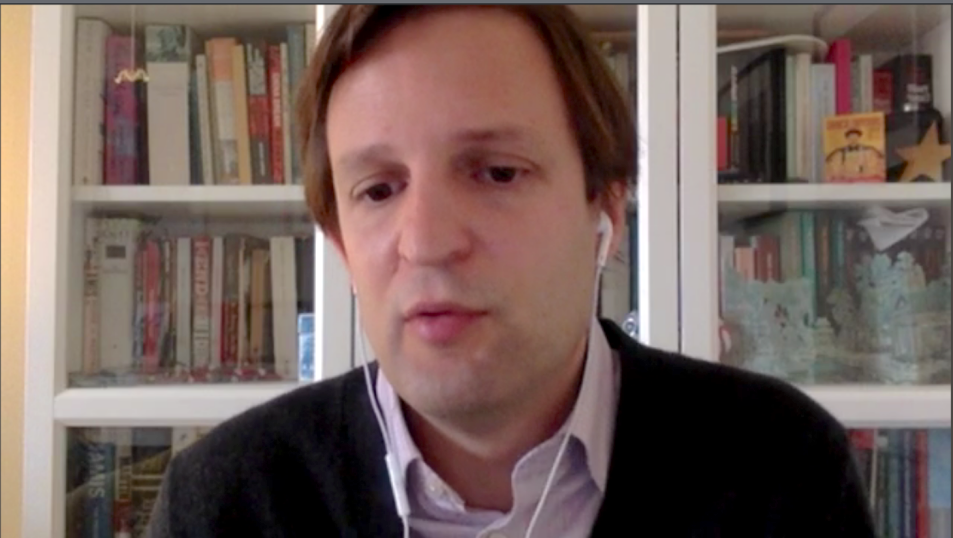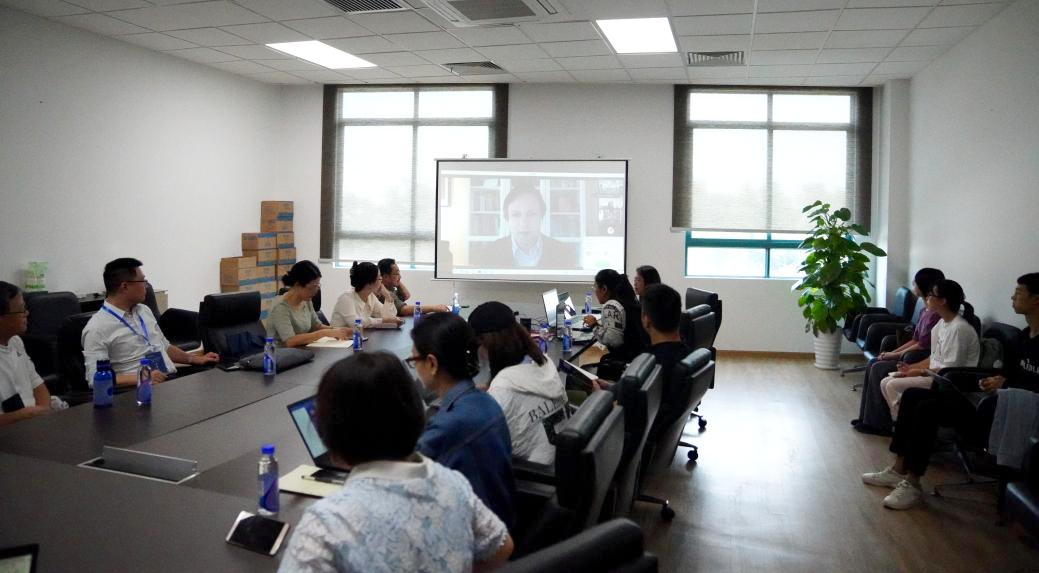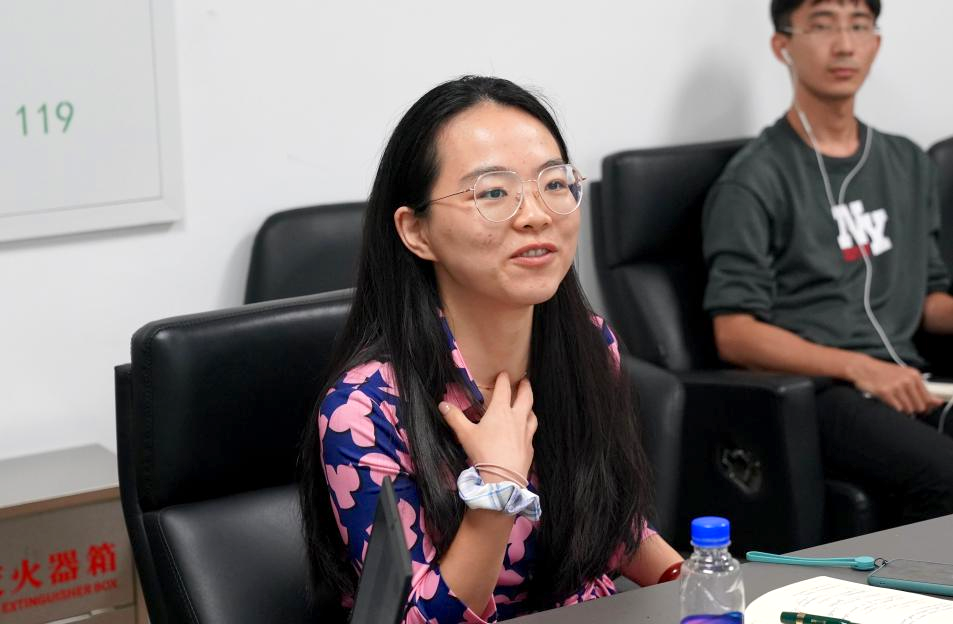On the afternoon of October 27th, the first lecture of the "Collective Intelligence in Education" international academic salon series, hosted by the Future Education College, was successfully held in room F301 of the Lijiao Building and online. The Intelligent Education Research Center of the college invited Dr. Jeremy Knox from the University of Edinburgh in the UK to bring a wonderful speech and discussion on the theme of "Data, Artificial Intelligence, and Future Learning" for teachers and students. Sun Bo, the vice dean of the college, all members of the Intelligent Education Research Center, and teachers and students from relevant majors of the college attended the lecture. The Future Education International Academic Salon series aims to invite international researchers, experts, and scholars in intelligent education to explore with teachers and students at Beijing Normal University Zhuhai Campus the opportunities and challenges that big data and intelligent technology bring to future education.

Firstly, Professor Knox introduced the application of artificial intelligence (AI) in the field of education. Professor Knox pointed out that as data-driven technologies such as AI or learning analytics are increasingly integrated into public education systems, educational researchers urgently need to conduct in-depth theoretical research on such technologies to further understand how they can shape and influence teaching practices and educational quality. He stated that the development of technology is often driven by innovation and social progress, and has become an unstoppable force in the field of education. However, few people explore what changes technology will bring to social development and what impact it will have on each individual in educational practice. Therefore, educational researchers and practitioners should be cautious about the introduction of new technology in education.
Next, Professor Knox analyzed the "risks of introducing technology in the education field." He pointed out that currently, companies and schools have extensive cooperation in education projects, and technology companies can provide various data-driven software and technology services for the education sector. However, the reality is that technology companies do not develop educational technology around educational practice, but rather develop technologies that efficiently collect and analyze data, and the introduction of such technologies may pose certain risks to education. Governments should exercise cautious regulation in this regard.
Then, Professor Knox expanded the discussion around the debate between behaviorism and constructivism theories in the field of education. He pointed out that information technology focuses on the behavior exhibited by students during the learning process. The development of data-driven software or technology is based on simple behavior analysis, such as how long students spent on a certain activity or how many times they clicked a button. However, it is worth considering to what extent these behaviors can explain or reveal student learning.

Finally, Professor Knox shared two teaching cases, one is the Learning Analytics Report Card (LARC) project, and the other is a graduate course project "Critical Data Science and Education". In both of these cases, data-driven technology is the dominant factor, and the types of data are becoming more diverse and rich, highlighting the participation of students and teachers in the data construction process. This better integrates technological progress with the development of teaching practice, and promotes the new generation of information technologies such as artificial intelligence, big data, and the Internet of Things to better serve the improvement of educational practice.

At the end of the lecture, the teachers and students had a lively discussion with Professor Knox. Professor Zhang summarized Professor Knox's overall dialectical thinking from social context to educational practice in the comparison between constructivism and behaviorism. She raised the question of whether the development of technology based on behaviorism implies that technology plays a greater role in educational evaluation rather than in teaching practice. Does the collection of multi-faceted and qualitative data reduce the efficiency of technology? Professor Knox stated that the use of technology should better serve teaching and improve the quality of teaching, rather than just being a tool for monitoring behavior. The teachers and students also discussed how to better achieve educational fairness through the introduction of technology, and whether the introduction of technology requires government regulation.
The academic salon ended successfully in the warm discussion.





 Phone:0756-3621121
Phone:0756-3621121
 Email:ccie@bnu.edu.cn
Email:ccie@bnu.edu.cn